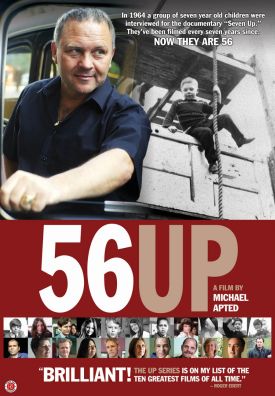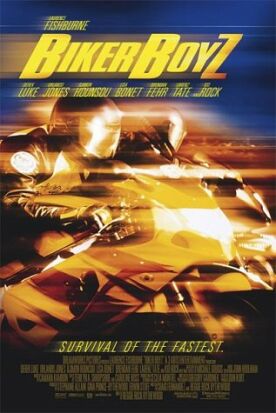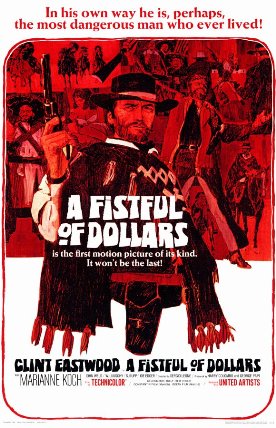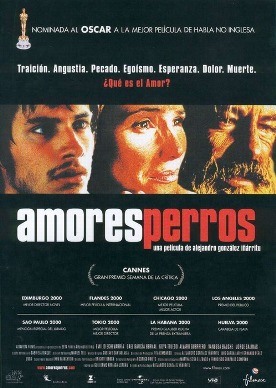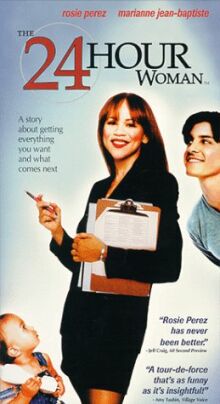Lost World, The: Jurassic Park
The Lost World: Jurassic Park by Steven Spielberg is virtually
indistinguishable from the original of four years ago—and indeed from most
other Spielbergian products, particularly in their emphasis on wise or clever or
dexterous children rescuing their parents and in their environmental message.
Indeed, the most curious thing about the whole film is that it hardly makes
sense apart from the assumption of a radical environmentalist point of view. We
are meant to sympathize with a thuggish Earth Firster, Nick (Vince Vaughn) who
lets the dinosaurs out of their cages and causes the deaths of several of his
colleagues, and who takes the bullets out of the gun of the great white hunter,
Roland (Pete Postlethwaite), so that he is unable to shoot a rampaging
Tyrannosaurus Rex on the point of devouring more people.
Likewise, part of the suspense of the ending depends on a putative anxiety as
to whether an anonymous cop with a high-powered rifle or Julianne Moore with a
tranquilizer dart will get to the bloodthirsty T-rex first.
We’re supposed to root for the gal
with the dart. This is, I take it, another kind of post-modernism, which
Spielberg pioneered in Hollywood in the Indiana Jones sagas. You
aren’t, in other words, supposed to
believe in this stuff as anything resembling real experience, or to
identify yourself with the characters in the traditional way. If you were and
you did, you would naturally want that T-rex shot before it could eat any more
people. That might be you being gobbled up! But here we are meant to look at the
prehistoric fauna with the same kind of detachment that a college teacher in
Portland looks at the logging industry. These rude, hairy people are destroying
“nature,”
and, since
“nature”
for me is merely something to see and smell from a safe distance, I want them to
stop. They might spoil my weekend.
Thus kids, who once would have been encouraged to identify themselves with
the intrepid explorers and hunters, now are asked only to put themselves in the
role of spectators. TV, after all, is what they know best. To be sure, a
Spielbergian cute little girl (Vanessa Lee Chester) saves her dad (Jeff
Goldblum) from being devoured by a velociraptor by means of her skill in
gymnastics, but Spielberg doesn’t try
to kid us that either she or her dad or her
dad’s girlfriend, Sarah (Miss Moore)
is ever in any real danger. We know the movies better than that! Even her movie
dad hardly bothers to go through the motions of anxiety when she stows away on
the expedition. He scolds her briefly, but soon shows himself to be nothing but
a big softie who lets her stay and look at the cute dinos.
Her purpose in a traditional picture would have been for her to be the
picture of innocence in danger. Not so here. Instead she is, like everyone else,
a cartoon hero, with a cartoon hero’s
stout purchase on life. Sarah too is a caricature, a typical Hollywood femme of
the 90s who combines a delicate and very soigné sort of beauty with a
reckless, masculine courage. On our first meeting with her, we see her go right
up to a dinosaur to photograph it while the three men who are her companions
hang back in admiration: “Too close,
too close!” says Dr. Malcolm, and
then: “Look at that! She
can’t not
touch.” This is not a person whom the
modern and post-modern conventions of narrative are going to allow to come to
any harm. The only real suspense in the movie comes from a slight doubt about
whether the bad hunters will kill the dinos before the good scientists and
environmentalists can save them and return them to the wild.
But for all Sarah’s barbed and
masculine personality, she seems to take pride in proving, against the accepted
current scientific wisdom, that the dinos
“were nurturing
creatures.” Indeed, it is this theory
which she uses to save the poor T-rex which the evil corporation, InGen, has
with typical stupidity brought back alive to San Diego. This of course not only
produces some typical anti-business propaganda, but it gives Spielberg an excuse
to do Godzilla-on-the-rampage shots in a major American city, plus various comic
bits, as when a little boy wakes his parents up to tell them that
there’s a dinosaur in their yard, or
when T-rex smashes through the border sign saying
“No fruits, vegetables or animals
beyond this point.” But, once the
monster has done all that, Sarah and Malcolm lure it back to the ship by taking
its baby (whose broken leg they have previously set and splinted with great
loving care) back there and waiting for mommy to come.
As always with Spielberg, the editing and special effects are exceptional,
but the writing and characterization are rudimentary. Here is an example of the
problem with David Koepp’s script. At
one point the obviously crazy Dr. Hammond (Richard Attenborough), the
dino-engineer from Jurassic Park I, says with a grin:
“Don’t
worry, I’m not making the same
mistakes again!”
It’s a good line, feeding into a
coarse but passable dramatic irony—but then the script spoils it by giving
Goldblum, as the Cassandra-like Dr. Ian Malcolm, the smart-alecky reply:
“No,
you’re making all new
ones.” Even worse is
Hammond’s pontificating on TV at the
end about how “these creatures require
our absence, not our help. If we can step aside and trust in nature, life will
find a way.”
It’s the last of several examples of
the film’s worst feature, which is
propaganda on behalf of such
rich-man’s causes as environmentalist
activism, feminism and anti-corporatism.
Discover more from James Bowman
Subscribe to get the latest posts to your email.


